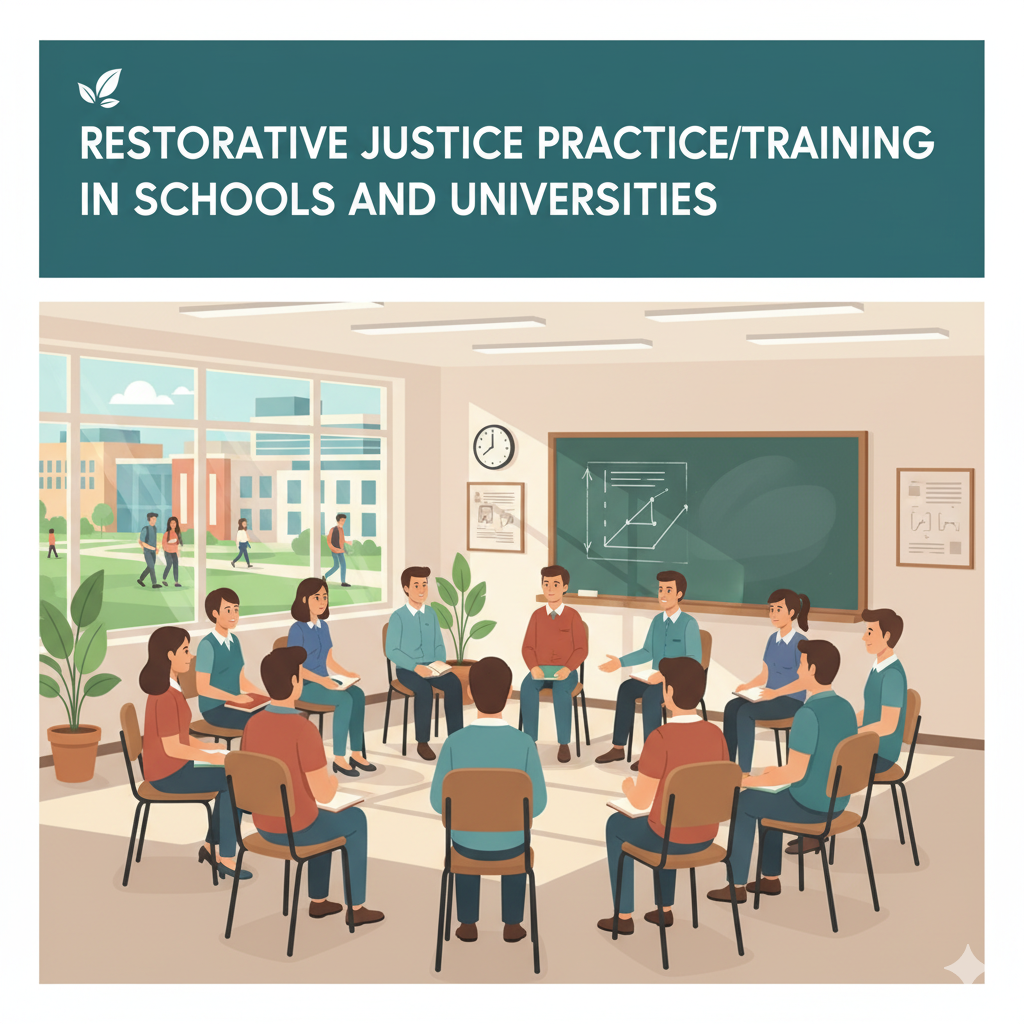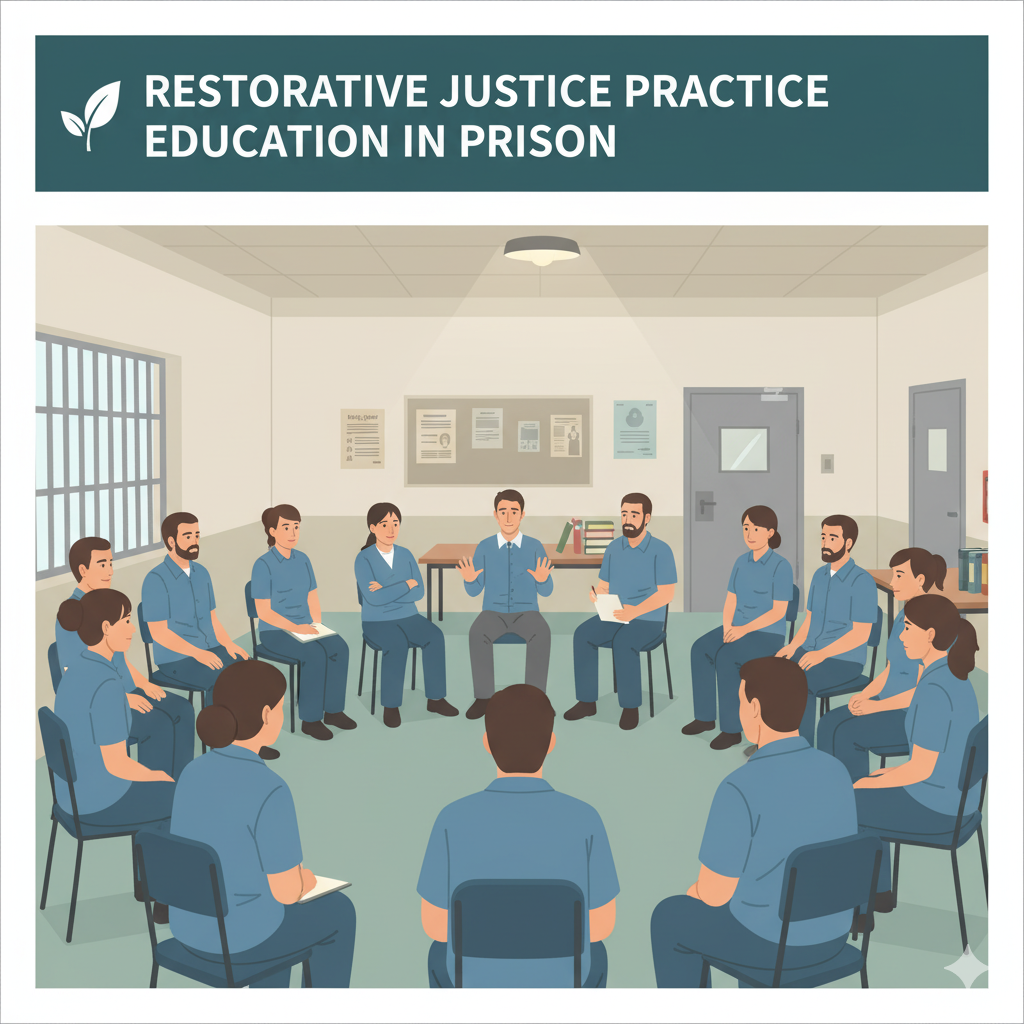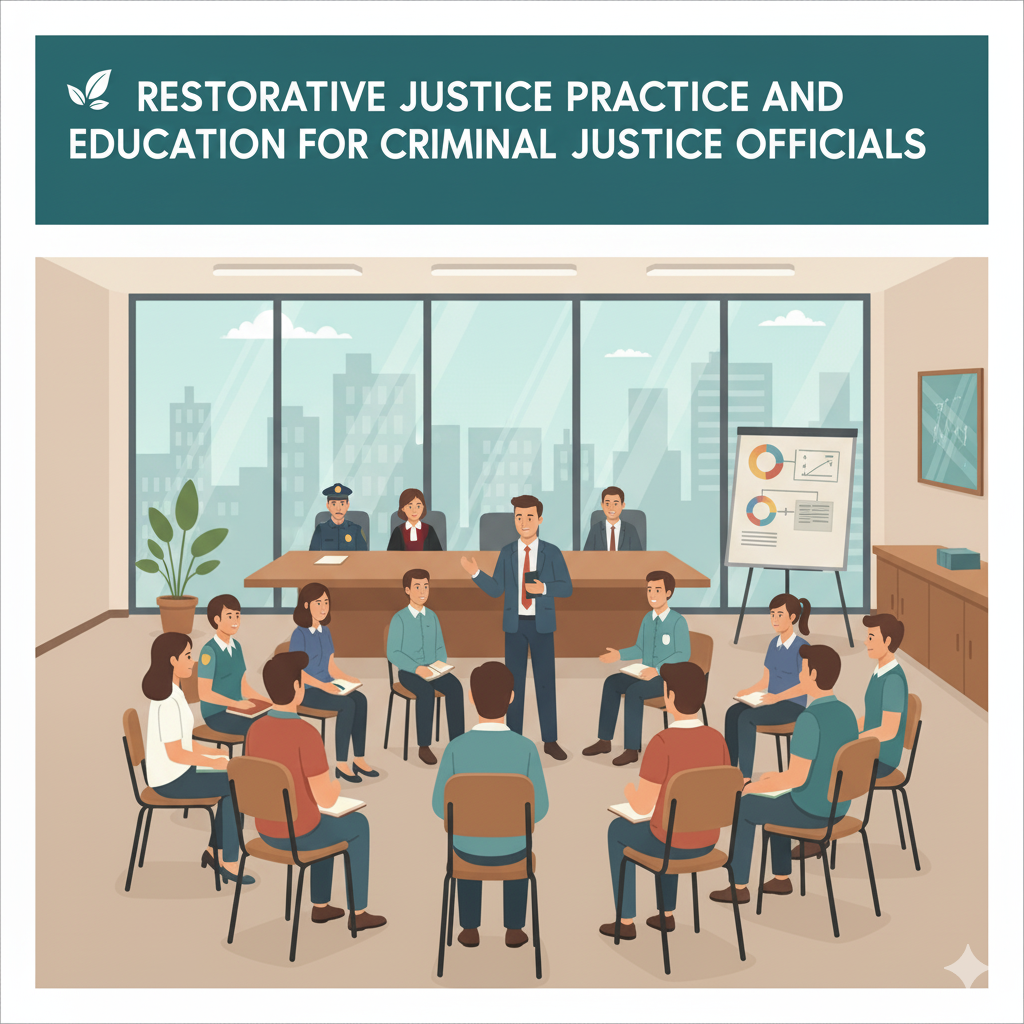Services

Restorative Justice Practice/Training in Schools and Universities
Schools and Universities are seeking ways to create a safe environment for their students, but incidences of bullying and violence still pervade. Student suspension rates are on the rise and many argue that forbidding students from attending to school exacerbates, rather than remediates, the problem. Suspension may also lack effectiveness since it denies conversation about underlying issues and unmet needs. Nor does suspension offer alternative strategies for handling anger effectively or navigating conflict tactfully, non-violently. Basically, it skips over the teaching point.
African Forum for Restorative Justice is committed to helping to educate the next generation of decision-makers on the need and benefits of Restorative Justice in schools and other educational bodies to improve the awareness, aspirations and attainment of students and officials.
Our approach is to provide practical support to teaching and support staff by bringing Restorative Justice Interest and expertise into the classroom while providing a range of opportunities for students to engage in Restorative projects and activities outside the school gates, embedding Restorative Learning in Community settings and harnessing the educational benefits of the natural world.

Restorative Services in the community
In contemporary times, community safety and cohesiveness are matters of serious concern as hate crime, religious, ethnic and political intolerances are beginning to emerge in our communities. Revisiting restorative traditions to rebuild relationships have become very imperative. Therefore, there are need to train and organise sensitization workshops and seminars for our religious, traditional/community, women and youth leaders for sustainable community cohesion, Alternative Dispute Resolution and peacebuilding.

Restorative Justice Practice education in Prison
The need for reformation and rehabilitation of offenders in prison before their release is good for the offenders, victims and the society at large. This will reduce the rate of reoffending, recidivism, prison overcrowding, the fear of crime and enhance effective reintegration of offenders into the community on release. Often times, offenders are stigmatized and rejected by community members after serving their jail term. Victims sometimes are fearful and intimidated when their victimizers are released, but providing restorative justice opportunities for offenders and victims to meet voluntarily in a safe and conducive prison setting will reduce the fear of crime and rejection upon offenders’ release from prison.

Restorative Justice Practice and education for Criminal Justice Officials
Police offecers
Police officers are the first agents of contact in the Criminal Justice System. And according to the UN Criminal Justice System Standards and Goals, the aims of policing are to prevent criminal activities and resolves day-to-day conflicts among family, friends and neigbours. But when police officers become agents of terror, these aims are inherently denied. Hence, the need to train police officers in the principles and practices of restorative policing becomes imperative.
Magistrates & Judges
The judiciary is the last hope of the common man. A French philosopher Francois de la Rochefoucauld once said that the last thing that dies in humans is hope. In most African jurisdictions, the cost of litigation, the delay in the dispensation of justice and the technicalities and commodification of justice kill the hope of the common man in the administration of justice. The need to make justice fair, quick, smooth and cost effective for the common man in Africa lies in the adoption and mainstreaming of restorative justice in the criminal justice system. Hence, it is imperative for Prosecutors, Magistrates and Judges to be trained and aware of the principles and practices of restorative justice in the criminal justice system because over-reliance on litigation for minor cases are not productive and cost effective.
